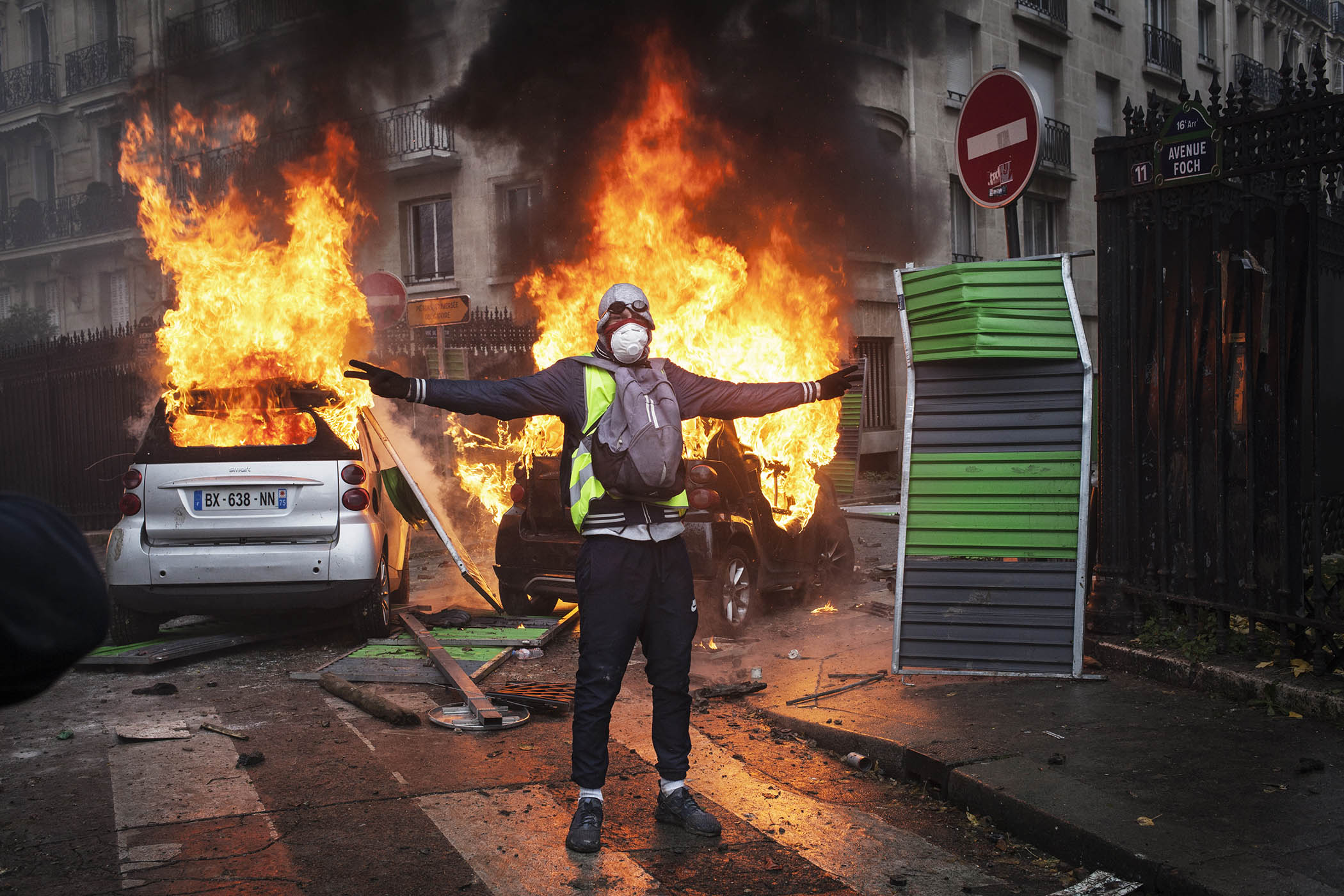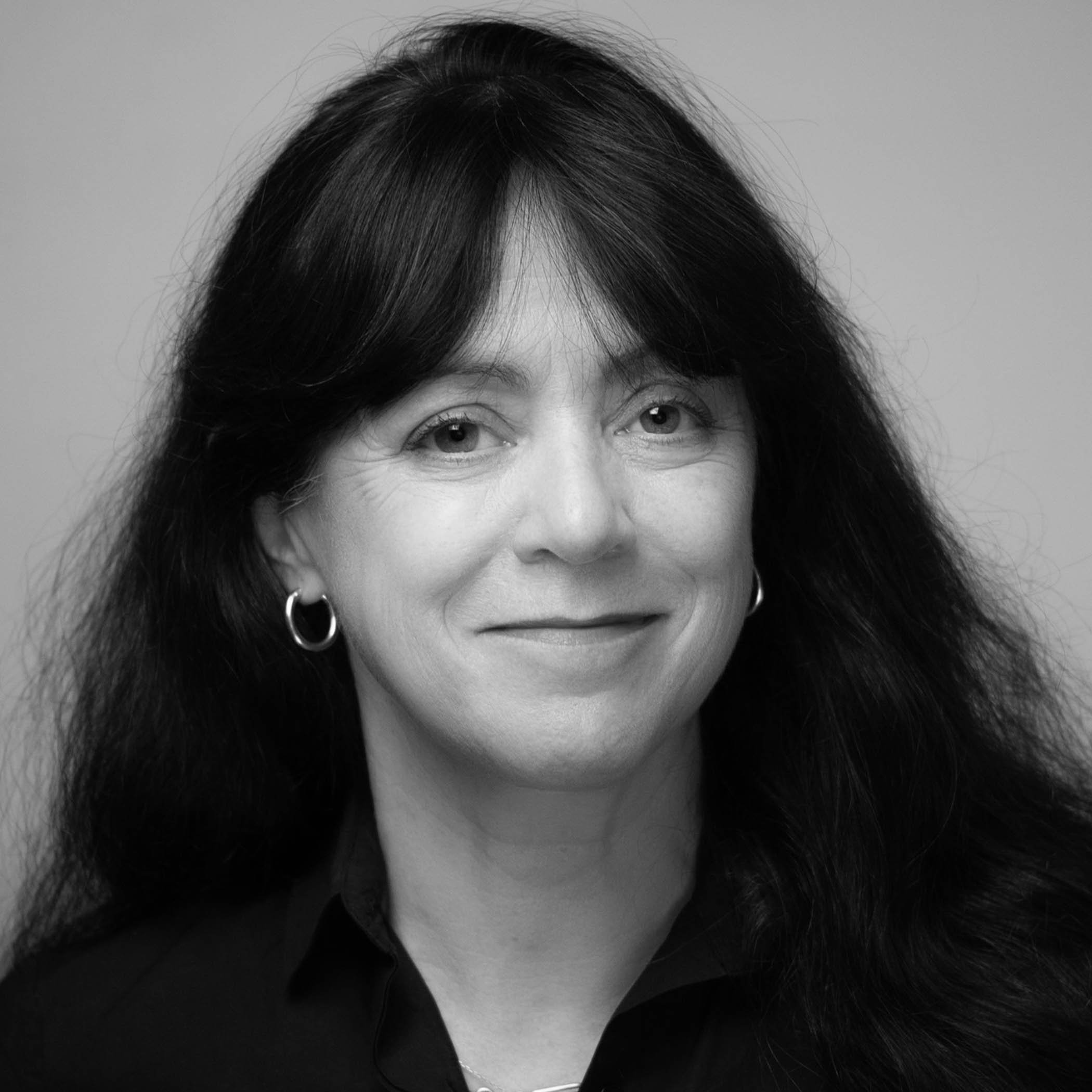The publication of the Paris-based British historian Andrew Hussey’s book Fractured France could not be more timely. The French government has fallen for the second time in a year, protesters have clashed with riot police, and union leaders are threatening strikes and blockades. France is deeply divided. But as Hussey admits, this is nothing new.
Fractured France opens with the author caught up in a riot while cycling back to his Paris home in 2018. Under a hail of missiles thrown by protesters, he is tear-gassed and charged by police. As a man in his early 60s with a heart condition, he fears he might die. What strikes him through the eye-scorching cloud of gas and burning rubbish bins, however, is not a chunk of paving stone but the sight of a “respectable looking” middle-aged man and others he assumes are the same age and “social class” hurling rocks and insults at the police. “How did it happen that such outwardly ordinary and peaceful people were attacking their own forces of order with such visible hatred?” he asks. “And what did it mean?”
Hussey’s journey to answer these questions takes him from the working-class post-industrial town of Roubaix in northern France to the Mediterranean port of Marseille, where around a third of the population is believed to be of Muslim origin. Wherever he goes, he is told France is fractured; “fascists” are on the rise; extreme leftwing anti-capitalist casseurs (the wreckers) are setting Paris and other cities on fire; working-class people are angry.
A 2024 survey entitled Fractures Françaises by pollsters Ipsos confirmed this discontent: 87% of those asked said they believed France was in decline, 78% that democracy was failing, and a majority admitted having little or no confidence in their president, MPs, parliament, political parties or media.
In Fractured France, Hussey adopts the theory of the French geographer and author Christophe Guilluy, who he interviews for the book. For 25 years, Guilluy has argued that the principle rupture in France is geographic, dividing winners, living in the “new citadels” of Paris and other metropolises, and losers in rural “deserts”, described as “peripheral France”.
Liverpool-born Hussey, who came to France to study in the 1980s and has lived here for 20 years, described the turbulent relationship between France and its Muslim population as a “guerrilla war” in his 2014 book The French Intifada. Reviewing Hussey’s account in the Guardian, the historian David A Bell suggested it was careless and “needlessly inflammatory”, and that he had made questionable generalisations without evidence.
Fractured France, with its portentous warnings of civil war, cannot entirely escape similar criticism. France is indeed fractured and chaotic, and so is this book. What brings it alive are Hussey’s own meanderings. The result is a mixture of memoir, travelogue and personal confession, punctuated with gossip, history lessons, interviews with writers and intellectuals, and chats with “ordinary” French citizens willing – or in one case paid – to answer questions.
When De Gaulle spoke of the difficulty of governing a country with 246 cheeses, his point was not about dairy produce
When De Gaulle spoke of the difficulty of governing a country with 246 cheeses, his point was not about dairy produce
Hussey is not afraid to stray from his title theme. Quite how the story of the American food writer Mary Frances Kennedy Fisher moving to Dijon in 1929 and then divorcing her husband for not meeting “her sexual needs” links to French political and social discord is unclear. In a curious non sequitur, Hussey says visitors to Reims might wonder if the writer Didier Eribon’s critically acclaimed Returning to Reims – detailing his impoverished childhood in the Champagne region – had all been made up. Why? Because “the cathedral is awe-inspiring and the quarter around it is elegant.”
Factual errors are more worrying. One French Muslim convert is, we are told, “the leader of radical Islam” in prison “where he is serving a 25-year sentence” having been involved in a car bombing during a 1996 G7 meeting. A fact check reveals the bomb exploded several days before the meeting – injuring no one – and the jailed man was released in 2021. In Angers, Hussey accuses the former local MP of exacerbating tensions in the city by calling off talks with the gilets jaunes before violent protests rocked the city. In fact, the talks were called off after the violence.
France has been fractured for centuries despite the attempts of successive regimes and governments to constrain its patchwork of cultures, customs and regional characteristics under one centralised republic. When former president Charles de Gaulle spoke of the difficulty of governing a country with 246 cheeses, his point was not about dairy produce.
Newsletters
Choose the newsletters you want to receive
View more
For information about how The Observer protects your data, read our Privacy Policy
Does Hussey answer his initial questions? No. This curious but readable book is less about the French and France and more about Hussey and France. And it’s all the better for it.
Kim Willsher is The Observer’s Europe correspondent, based in Paris
Fractured France: A Journey Through a Divided Nation by Andrew Hussey is published by Granta (£25). Order a copy from The Observer Shop for £21.25. Delivery charges may apply
Editor’s note: our recommendations are chosen independently by our journalists. The Observer may earn a small commission if a reader clicks a link and purchases a recommended product. This revenue helps support Observer journalism
Photograph depicts a ‘gilet jaune’ protester on the streets of Paris in 2018, courtesy of Getty Images

